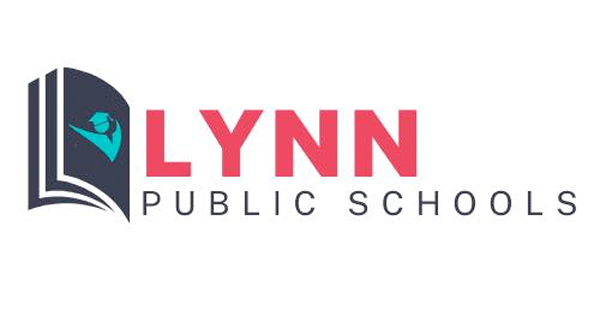
The COVID-19 pandemic may be in the rear-view mirror for a majority of people, but the fallout is still very much being felt in schools, forcing administrators to be both proactive and innovative in addressing it.
In Lynn Public Schools, there has been a concerted effort throughout this school year to increase student engagement, with a specific goal of mitigating a post-pandemic increase in student conflict.
The reasons were fairly clear to teachers and administrators, with the loss of socialization and learning that took place during the lockdown at the top of the list. Even with this school year being the second since the return to in-person learning, the residual effects were still being felt, prompting the district to act.
“It’s been a challenging year on the social-emotional side, especially at the middle-school level,” said interim superintendent Debra Ruggiero. “We wanted to provide opportunities for students to stay engaged.”
A Student Engagement Task Force was formed, comprised of representatives of the school department, City Hall and Lynn Police and facilitated by Interim Deputy Superintendent Molly Cohen. Stakeholders convened to discuss possible reasons for the uptick in student conflict and possible steps that could be taken to mitigate that increase. Mayor Jared Nicholson and Police Chief Christopher Reddy were included in the discussion, with the task force meeting monthly.
Providing students opportunity beyond the school day is a time-tested manner in which to further engage them. With that in mind, Lynn Public Schools applied for and received a grant from the Play Ball Foundation, which invests in schools in high-need communities to provide equitable access to team sports, which empower middle school youth. Health and physical education teacher Colleen Peterson led the efforts to obtain the grant.
LPS was allotted $25,000 this year, $50,000 next year and $75,000 in year three of the grant. With the funding received this year, the middle schools were able to offer a new soccer program, with 135 students participating. This program is in addition to the traditional middle-school teams which compete vs. other schools.
“This is geared to kids who may not have made the school team and didn’t have the opportunity to play an organized sport. There are about 1,300 students at each of the middle schools and only about 20-25 make a team, so that leaves a lot of kids without that opportunity. This was our chance to get more kids involved and to create team-building and leadership skills.”
Interim superintendent Debra Ruggiero
The plan is to add a second sport next year and a third the following year as the funding increases.
The collaboration with Play Ball is the latest example of the schools trying to expand after-school programming as part of the overall effort to enhance social-emotional learning. Programs already in place include the Breed All-Stars, funded by the Essex County District Attorney’s office and geared to helping at-risk students develop leadership skills and avoid self-destructive behaviors, and Project YES, an after-school and summer program at Marshall Middle School designed to help students develop the skills needed to become strong leaders in the school and community.
“When the school day ends, parents are working and there is a gap,” Ruggiero said. “We want to keep kids at school engaged in fun, safe activities.”
As Lynn schools put an emphasis on social emotional learning at the middle school level, there is a template to try to replicate. Anthony Seaforth has been working with high school student-athletes since 2016, conducting after-school study halls that encompass academics, behavior, discipline and mentorship.
Twice-weekly, 75-minute sessions are held at English and Classical throughout the school year. Seaforth monitors students’ academic progress and lets them know if they need to see a teacher for extra help.
“I serve as a liaison for the coaches, teachers and parents,” said Seaforth, a standout student-athlete at Classical (Class of 2001) who went on the play football at Bentley University. “I track them throughout the academic year and try to resolve issues that arise.”
The goal, Seaforth said, is to “build structure for student-athletes, and to help them be better students and maintain their eligibility.”
Approximately 225 students have participated in the program this year. In addition to academics, Seaforth has added a mental-health component, bringing in therapists and counselors to address topics including anxiety and depression, while relating it to sports.
“Social emotional learning can happen in every aspect of life,” Seaforth said. “You may have take steps to calm down if you’re at the free throw line and the game’s on the line, and if you’re angry in school you may need to take a step back from the situation.”
With the success the Seaforth Movement has had at the high school level, it seemed logical to ask him to bring it to the middle schools, so he ran a pilot program with the Breed Middle School boys basketball team this year. Not surprisingly, the results were very positive, with the players’ grades and behavior improving.
“We have seen the impact of Anthony’s program and we want to do what we can to provide opportunities to more students, especially in the middle schools,” Nicholson said. “We are pleased to be working in that direction.”
The goal, Ruggiero said, would be to make the program available to all students, not just athletes, an idea Seaforth endorses.
“I think this program is tailor-made for middle school,” he said. “The kids are more receptive and you can get parents’ buy-in because they want this type of after-school programming.”
The above press release was submitted to us by Mayor Nicholson’s office.
If you have a news story that you would like to share, please contact us via email or call 781-780-9460.

